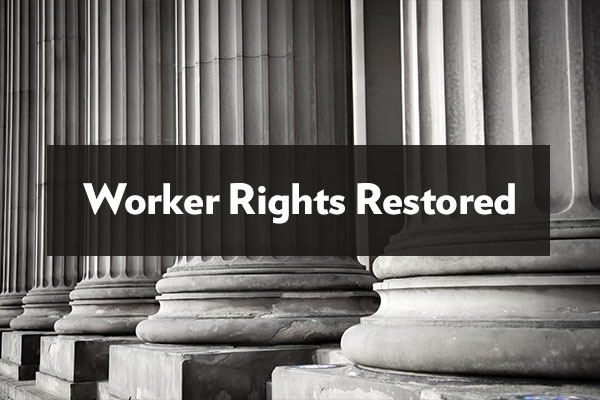Media

Time to Shed Light on New Workers’ Rights
This Labor Day marks ten weeks since the Supreme Court ruled in Janus v. AFSCME that government employees should not be forced to pay a union or risk losing their jobs. In Pennsylvania, that means 330,000 government employees now have a choice when it comes to paying a union—many for the first time in their careers.
The question is, what will they choose?
Will they exercise their First Amendment rights, or continue to support unions whose politics they may oppose? Have they even heard of the Janus decision?
Lloyd Corder of Carnegie Mellon University recently conducted a nationwide study to answer these questions. He surveyed 300 public-sector union members about the Janus decision, and the results are eye-opening.
When asked if they were aware of Janus v. AFSCME, 71 percent of union members responded Yes, 29 percent No. Not only that, but 51 percent agreed with the ruling.
These results suggest the dam could be about to burst. Dr. Corder’s survey shows 6 percent of workers have already stopped paying union fees, and a further 25 percent plan to do the same. Not surprisingly, union leaders are frantically trying to keep workers in the dark about their Janus rights. Meanwhile, organizations like Americans for Fair Treatment make resources and support easily available for any government worker who wants to resign from their union.
Considering the amount of money being stripped from these workers’ paychecks prior to Janus, there’s a powerful incentive to assert their constitutional rights.
We’re talking about hundreds of dollars a year from schoolteachers, municipal clerks, police officers, and firefighters. It’s been a bonanza for unions—who have been harvesting millions from Pennsylvanians’ paychecks—and a money pit for those workers who don’t want or need union services, but who had no choice but to pay up. Until now.
So naturally, unions are in no hurry to inform the nearly one-third of members who haven’t heard that Janus makes all their dues and fees optional.
That’s why HB 2571, a Janus notification bill sponsored by Rep. Kate Klunk, is so important. It requires unions to tell new government employees and non-union members that membership and payments are now voluntary and won’t affect their employment. It also repeals fee collection laws that contradict the Janus ruling.
HB 2571’s impact on Pennsylvania will be huge. Knowledge is power, and government workers deserve to have the power to choose. Instead of unconsciously funneling money to whichever political causes the unions feel like supporting, workers get a reminder that their money belongs to them.
The Janus notification bill is only one of several bills currently being introduced on behalf of government workers. Another, which bans the disingenuous union practice of narrowing members’ resignation windows, is being introduced by Rep. Greg Rothman. This is similar to Rep. Fred Keller’s HB 2539, which prevents union bureaucracies from their common practice of giving members the run-around when they try to resign. Rep. Keller’s bill cuts through the red tape―another win to workers’ liberty. Also, Rep. Seth Grove has announced a bill that will give government workers a bigger voice in their workplace by requiring regular union recertification elections.
The need for workers to take back their rights is now greater than ever. Recent proposals by union-backed lawmakers―and executive orders by Governor Wolf―are taking choices away from public servants.
One of Wolf’s executive orders, for example, has forcibly incorporated 20,000 home care workers in Pennsylvania’s Medicaid program under an agreement with two government unions. Other lawmakers hope to pass “card check” legislation that strips workers of private and anonymous voting in their workplace unionization elections. These efforts reflect the renewed surge in union influence through political spending, which in Pennsylvania alone totaled $114 million from 2007-2017.
With that much money in play, it’s no surprise union allies in Harrisburg are fighting hard to keep workers in the dark.
By passing legislation to inform and empower workers, Pennsylvania can throw open the doors and windows on unions’ back room and bring transparency and protection back to the workplace.